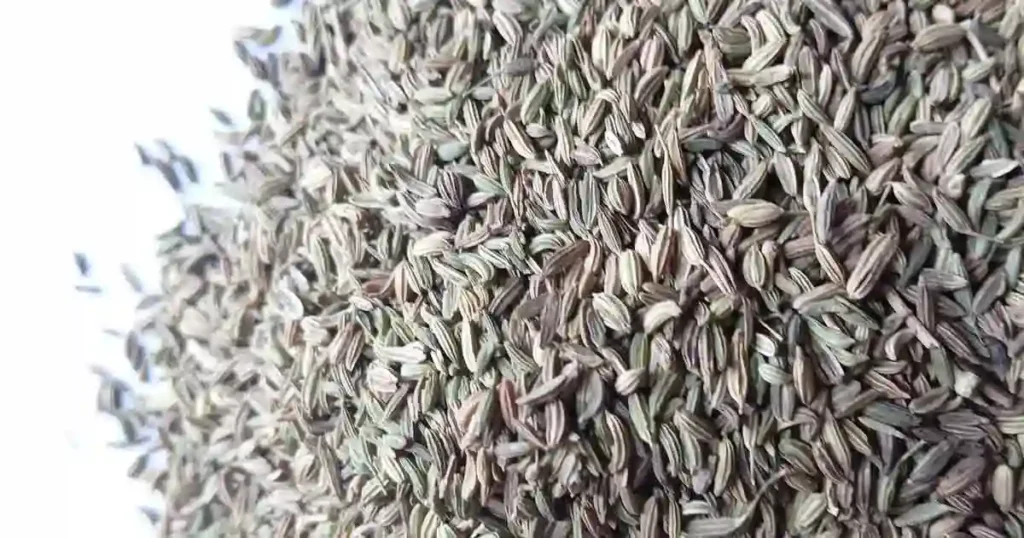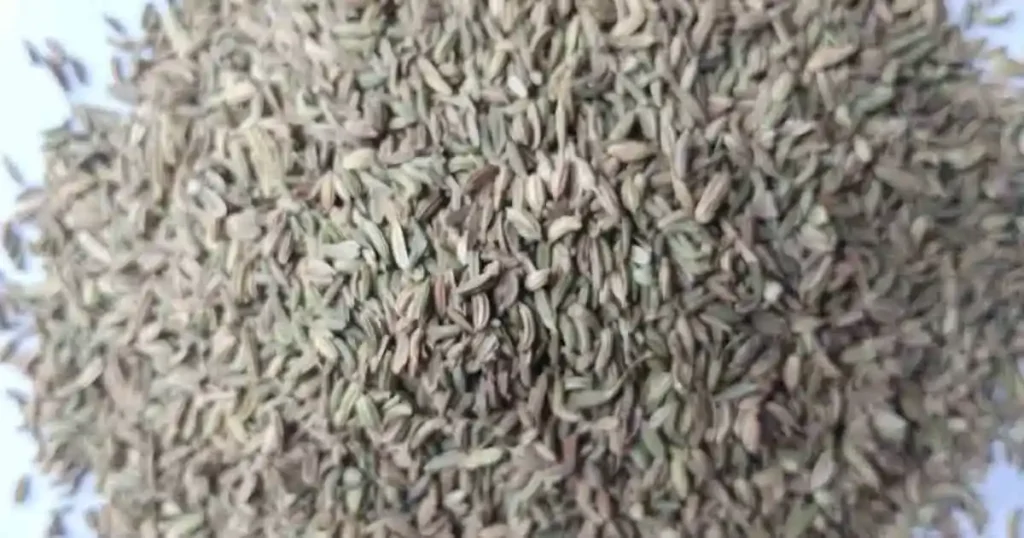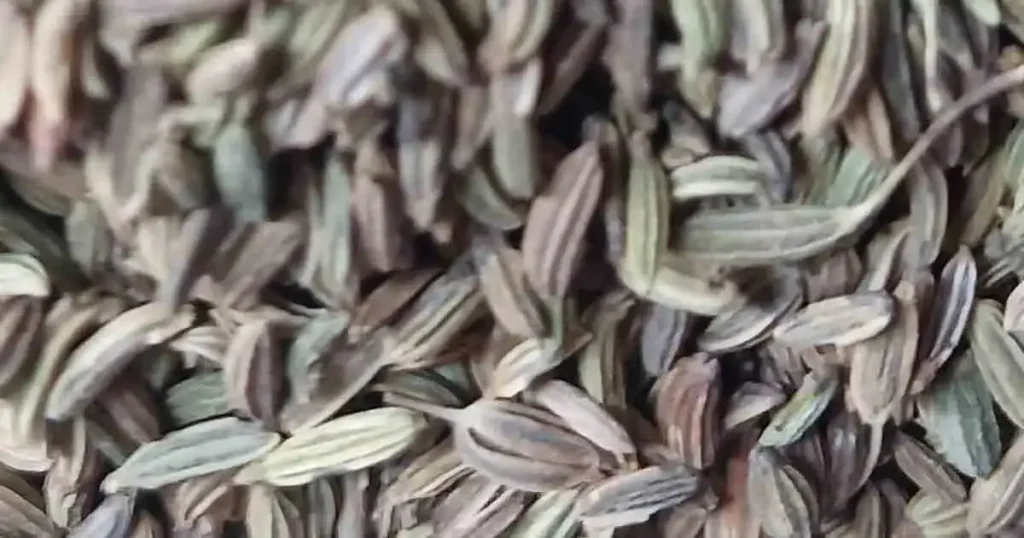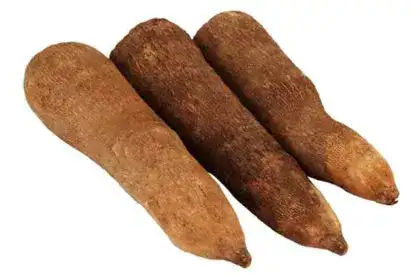Sombu in English come with a different name, but all the other aspects of the seeds remain precisely the same without any difference. It is the aroma and the taste of the sombu seeds that make it favorable after dinner or lunch.
Sombu seeds have earned their name in India for their aromatic odor and their digestive properties; this article will go through all the aspects of Sombu seeds to give you a clear idea of what kind of benefits you can expect from them.

There are a lot of interesting facts and usage details that can make your interaction with Sombu seeds better. This article will go through all the benefits, nutrients list, and its share of side effects of sombu seeds to show you how your body will get influenced by it.
The seed is an afterthought, but it can certainly benefit the dish once added. If you wish to change up some dishes or create a new one without ruining the overall aroma of the dish, then Sombu seeds can become a great help here, Since Sombu seeds are known for their aroma or odor, there are other details that might make the ingredients interesting.
| Binomial Name | Foeniculum vulgare |
| Kingdom | Plantae |
| Genus | Foeniculum |
| Species | F. vulgare |
| Family | Apiaceae |
| Order | Apiales |
| Clade | Tracheophytes |
| Clade | Angiosperms |
| Clade | Eudicots |
| Clade | Asterids |
Sombu in English name
Sombu in English are known as fennel seeds in many parts of the world; it is fairly common to come across different names for the seed, as the sombu is widely popular in many Indian households for a variety of reasons. Suffice it to say people also have come up with hundreds of recipes that include sombu as a side ingredient.
The popularity of the seed comes from its usage. Many parts of India have their own unique recipes that involve sombu in one way or the other. Some people might confuse Sombu seeds with other seeds since their visual appearances are very striking, but upon closer examination, you will start to notice the difference between them. This article will take a look at all the aspects of Sombu seeds to create a proper picture of the ingredient.
The cultivation of the seed can be found throughout the world, but India takes the cake of being the largest producer of fennel seeds. Having the title of the largest producer of sombu seeds or fennel seeds, you can get a pretty good discount on the cost of the seed.
Sombu Seeds Nutrients Value
Switching to healthy food-related products in modern times can become complicated because fast food and other readily available comfort foods are designed to consume on a massive scale.
But when you make a switch to healthy ingredients, it will grant your body the proper resilience to fight off the common disease. All the benefits from Sombu seeds will perform wonders for your body; they also come with a wide variety of nutrients that influence many parts of our body.
Here we will look at the nutrient details of fennel seed; the nutrient details will be linked with the benefits of the sombu seeds. So any benefit you come across about sombu seed will be directly linked to the nutrient it offers upon consumption.
| Nutrients | Quantity |
|---|---|
| Energy | 1,443 kJ (345 kcal) |
| Carbohydrates | 52 g |
| Dietary fiber | 40 g |
| Fat | 14.9 g |
| Protein | 15.8 g |
| Nutrients | % of DV | Quantity |
|---|---|---|
| Thiamine (B1) | 36% | 0.41 mg |
| Riboflavin (B2) | 29% | 0.35 mg |
| Niacin (B3) | 41% | 6.1 mg |
| Vitamin B6 | 36% | 0.47 mg |
| Vitamin C | 25% | 21 mg |
| Calcium | 120% | 1196 mg |
| Iron | 142% | 18.5 mg |
| Magnesium | 108% | 385mg |
| Manganese | 310% | 6.5 mg |
| Phosphorus | 70% | 487 mg |
| Potassium | 36% | 1694 mg |
| Sodium | 6% | 88 mg |
| Zinc | 42% | 4 mg |
Water – 8.8 g
Information – (μg = micrograms • mg = milligrams
IU = International units) (Data Taken from Wiki)
Health benefits of Sombu seeds
The sheer number of vitamins, minerals, and other compounds makes the Sombu seeds; one of the many healthy items in the market. Regular consumption may help your health, but you should be aware of its side effects as well.
While the research on the fennel seed is very low, we have yet to discover more information about sombu usage; some studies have successfully linked the Sombu seeds to be effective against many common symptoms and diseases.
This section of the article will show you how these Sombu seeds provide health benefits and what makes sombu effective in many common symptoms or diseases in the modern diet routine.
2. The nutritious value of Sombu seeds
Here is the list of nutritious components Sombu seeds bring to our body; it is better if you add them to your diet than other products. Sombu seeds also have research backing up. Most of the benefits are listed below; over the years, people have been using the sombu for many medicinal purposes.
Both fennel and fennel seeds come low on calories, but they supply plenty of nutrients. Fresh fennel bulbs have a good source of vitamin C, which can help with immune health, tissue repair, and collagen synthesis.
Vitamin C also helps as it is known as a potent antioxidant in your body, helping against cellular damage caused by free radicals. Both the bulb and seeds of fennel seed or sombu come with the mineral known as manganese; it plays a critical role in enzyme activation, metabolism, cellular protection, wound healing, bone development, and blood sugar regulation.
Other critical minerals such as potassium, magnesium, and calcium help with bone development.
2. Comes with powerful plant compounds
The antioxidants and potent plant compounds are one of the major highlights of fennel seeds.
The essential oil of the fennel seed is shown to contain more than 87 other major compounds; the list of compounds here includes polyphenol antioxidants rosmarinic acid, apigenin, chlorogenic acid, and quercetin.
3. Fennel seeds reduce your appetite.
Fennel seeds get used to their atomic flavor, as they will not have any new taste in your dish, but the number one benefit of adding fennel seeds can help by curbing your appetite.
A study of 9 healthy women showed the power of fennel seeds on our hunger, as the participants who drank 8.5 ounces (250 ml) of tea covered with 2 grams of fennel seeds before eating lunch had less urge for hunger and consumed fewer calories than the people from the other side of the study.
Another study that took 47 women into its research found that the recipient that consumed fennel seed showed less weight gain than the opposite side of the coin. Again it is easier to find some research that can complicate the data sets, but overall, fennel seed might help reduce your overall appetite.
Research in many of these topics will be conflicting in nature; we might see more studies being performed on fennel seeds to understand the potential of fennel on our appetite fully.
4. Can benefit our heart health
Sombu seeds do come with a lot of fiber, which is shown to reduce certain heart disease risk factors like high cholesterol in our bodies.
Take a single cup of raw fennel bulb; you will get around 3 grams of fiber, which is around 11% of the Daily Reference Value. Many articles have been published reporting healthy Diets with high fiber linked to a reduced risk of heart disease. The chance of heart disease lowers if fiber becomes a strong part of the current diet routine.
Another handful of nutrients like magnesium, potassium, and calcium all of them do play critical roles in keeping your heart healthier for a long time.
5. It may have cancer-fighting properties.
Some studies have shown that sombu seeds have a positive effect on cancer-causing elements of our bodies. But you should know these studies are conducted on animals, not on human beings. So always take a skeptical eye to these types of benefits; strong research is needed to understand all the effects sombu has against cancer.
6. It may benefit breastfeeding women.
Fennel comes with galactogenic properties, which have been linked to increased milk secretion.
Fennel may help with increasing milk secretion and blood levels of prolactin (a hormone that tells the body to produce breast milk.)
Side effects of sombu seeds
Side effects are not rare when it comes to any food ingredient in the make; that fact is alive in seed types of ingredients as well. Most of the negatives you will find about sombu seed or any seed-like ingredient will lie in its usage. Consuming the same type of ingredient almost on a daily basis will trigger many problems in our bodies.
Some of the side effects of sombu seeds include:
- difficulty breathing
- tightness of chest/throat
- chest pain
- hives
- rash
- itchy or swollen skin
- mild increase in menstrual flow
- sun sensitivity
- nausea
- Vomiting
These are some of the side effects that lean on the minor side of the issue; one of the major side effects of fennel happens to be seizures. Make sure to consult your personal health adviser to see if your body is compatible with fennel seeds or not.
If you feel any nausea or any of the symptoms mentioned above, then you need to stop consuming sombu right away and quickly contact your doctor to take proper steps right from that point.
Side effects of sombu seeds should be taken seriously as with any other seeds in the market. Allergic reaction is one of the common issues with any food in the market. It can be difficult to tell if your body is supportive of the food or not; asking a doctor will give you everything you need to know about your body’s compatibility with the food you crave in the market.
Some photos of sombu seeds


The cost of Sombu seeds
The cost of Sombu seeds will stay between 20 to 300 rupees, as fennel seeds are very affordable and available in many local stores. Fenne; Seeds’ popularity lies in their digestion aspect of it.
It is a perfect item to have around after a good meal. It also leaves a great fragrance in the mouth. The cost here is very affordable; you can get a decent amount of sombu seed for 130 to 150 rupees.
You can get an abundance of sombu seeds for a price between 20 to 30 rupees. It comes down to the quality the brand pushes through the product. Some brands are known for their quality, and the price they will add to their product will be higher than your common product brands. But most of the sombu seeds are going to be good in quality; you will get a decent amount of the seeds for a lesser price.
A bulk purchase of Sombu seeds will lead to a higher discount on the overall cost. Consider using coupons or various other forms of discounts to lower the entire cost of the purchase. Most ecommerce websites offer Sombu seeds or other food ingredients with discounts and sale dates, which can cut off the cost to 25% or even higher.
Local Sombu seeds dishes
In many restaurants, you will see sombu seeds in many of the common dishes, they might have yet to write it down on the menu, but you can smell the sombu from a mile away if you are familiar with the fragrance.
The addition of the sombu seed has elevated plenty of dishes from smelling good to the consumer. The mixture of sombu with other seeds does add a lot of other ingredients in order to elevate the overall appeal of the dish. That’s why in many Indian households, sombu seeds always get mixed with others to give the smell a boost to this attraction.
When it comes to local favorite recipes of sombu, there are many but one that takes the cake is sombu chutney, which is very easy to make by anyone, whether you have spent your time in the kitchen or you have never stepped foot inside. They are very simple to make by any skill level without putting in way too much effort.
You will need around:
- 2 tsp Fennel Seeds
- 1/4 Cup Grated Coconut
- 4 to 5 Red Chilli
- 3 to 4 Small Onion
- Salt To Taste
Steps –
- Just peel the onion and coconut, take the mixture, add the grated coconut, onion, red chili, fennel seed, and salt, and then grind all the ingredients.
- You can add water in between to smoothen the paste; now, take out a pan, add the paste or chutney, and pour some water. Set the flame to low and cook it for 5 to 7 minus.
- Once 7 minutes pass, you will no longer smell the onion, as the chutney will thicken.
- Always close the pan, or the chutney will splutter. Occasionally stir the chutney to make sure it doesn’t get burned from the bottom.
- And voila, it’s ready to serve.
This is one of the many more interesting sombu recipes you will find online; almost all of them will have a unique appeal to them, and they are very easy to make. As the ingredients are very cheap, you can make some mistakes on your way to perfection.
The widespread usage of Sombu seeds lies in after a chunk of meal; properly using the sombu seeds can get complicated in a dish. There are people posting guides and video walkthroughs focusing on Sombu seeds and the variety of use of the seed to make it more diverse.
Conclusion
Sombu in English are the same ingredient as it is in other languages. It is one of the perfect ingredients to have to add a much-needed aroma to a dish. They also come with a long list of benefits as well as side effects; make sure to look at both sides of the coin to understand how valuable they can be for your body fully.
Again if you have any prior problems with seed-type items in the market, you should also ask your doctor for proper advice on food consumption.
FAQ
Here are the most asked questions about Sombu seeds.
Do Sombu seeds work with skin problems?
Minerals such as potassium, selenium, and zinc will help your skin by raising skin cell longevity. These minerals also play a role in balancing the hormones while maintaining the oxygen balance in the bloodstream. For a long time, sombu seeds have been used to treat skin ailments like acne, dryness, and rashes.
Can I get Sombu seeds at an affordable price?
Sombu seed products in the market can be found for under 20 rupees. When you shop on ecommerce websites, you will find a much lower price attached to Sombu seed products; check out the reviews to see the quality of the Sombu seeds before making the purchase.
The quality of Sombu can push its average asking price to 100 or more rupees. As a premium quality, Sombu seeds will have their own quality and asking price for them. The cost here will differ from the average grade of Sombu seeds.
Should I limit the amount of sombu consumption?
Yes, taking too much of anything will result in things turning sour, no matter how healthy they can be; the same rule applies to food as well. Even if the food in discussion is filled with all sorts of nutrients and minerals, taking too many of them will not help your case at all.
In fact, the opposite will take place; soon the overconsumption of food will stir up plenty of problems that will spiral beyond your control.
Here setting the right dosage amount is a proper way to approach the dish in the long run; that’s why it is always advised to mix things up to add more ingredients before you make it ready to serve.
Can I use Sombu seeds for food purposes?
The fragrance is the key here; you can absolutely add sombu seed to many of the common Indian dishes such as pulao, biriyani, kuruma, gravies, and many soups. Most of the spicy dishes available for Indian cuisine can benefit a lot by having sombu in the dish. The aroma of the fennel seeds can steal the dish for people without trying it out.

